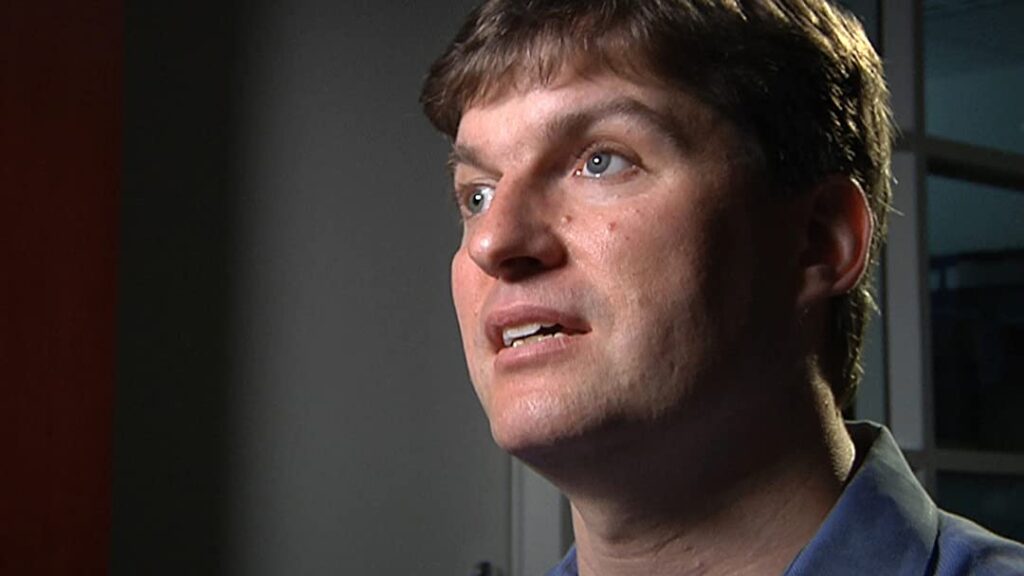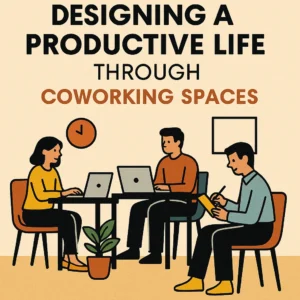In this blog post of the Entrepreneur Stories by Work Theater, we cover Michael Burry’s incredible journey and the key takeaways that budding entrepreneurs can learn from him.
Welcome to another article of Entrepreneur Stories, where we delve into the lives and legacies of some of the most successful and influential business magnates. Today, we will explore the incredible journey of Michael Burry, the man who foresaw the 2008 financial crisis and bet against the U.S. housing market. Let’s dive into his early days, struggles, rise to prominence, and enduring legacy.
Early Days
Born in 1971 in San Jose, California, Michael Burry was a prodigious child who learned to read at a young age. He excelled in academics and went on to study medicine at the Vanderbilt University School of Medicine. However, his passion for investing was ignited during his medical residency when he started using his spare time to study the stock market.
Struggle
Burry’s journey was not without obstacles. As a physician, he faced skepticism from Wall Street professionals who questioned his qualifications to manage investments. Moreover, he was diagnosed with Asperger’s Syndrome, which made social interactions difficult for him. Despite these challenges, Burry persevered and continued to pursue his passion for investing.
Transition to Finance
In 2000, Burry left medicine to start his own hedge fund, Scion Capital. Armed with a unique investment strategy and an extraordinary ability to analyze complex financial data, he quickly gained recognition for his uncanny ability to spot undervalued investments.
Foresight and the 2008 Financial Crisis
In the mid-2000s, Burry recognized the flaws in the housing market and the subprime mortgage bubble. He bet against the market by shorting mortgage-backed securities, a move that was initially met with ridicule from Wall Street. However, when the market eventually collapsed in 2008, Burry’s investments paid off massively, making him one of the few winners in the financial crisis.
The Big Short
Burry’s role in predicting the 2008 financial crisis was immortalized in the book and subsequent film “The Big Short.” His character, played by Christian Bale, brought him widespread recognition and solidified his status as a financial genius.
Post-Crisis
After the crisis, Burry dissolved Scion Capital and took a hiatus from investing. He returned in 2013 with a new hedge fund, Scion Asset Management, focusing on value investing and capitalizing on market inefficiencies. His investment strategy remains unconventional, and he continues to challenge the traditional Wall Street mindset.
Philanthropy
Burry is also known for his philanthropic efforts. He has supported various causes, including autism research and education, to help those who face similar challenges as he did.
Legacy
Michael Burry’s legacy lies in his unrelenting pursuit of the truth and his willingness to challenge conventional wisdom. He has inspired a new generation of investors to think critically and independently about the markets, making him an influential figure in the world of finance.
Burry’s life story is a testament to the power of perseverance and conviction. He overcame numerous obstacles to become one of the most respected figures in the world of investing, leaving an indelible mark on the financial landscape.
Now, let’s look at 27 key learnings from Michael Burry’s business philosophy, illustrated with examples and quotes that he respects:
- Trust your instincts: “You must be willing to ignore conventional wisdom to succeed.” – Michael Burry
- Do your own research: “I don’t believe in blindly following expert opinions.” – Michael Burry
- Embrace unconventional strategies: “The markets are designed for people to lose money.” – Michael Burry
- Focus on long-term investments: “The stock market is a device for transferring money from the impatient to the patient.” – Warren Buffett, a quote Michael Burry appreciates.
- Learn from history: “Those who cannot remember the past are condemned to repeat it.” – George Santayana, another quote that resonates with Burry’s investment philosophy.
- Be patient and persistent: “In the short run, the market is a voting machine, but in the long run, it is a weighing machine.” – Benjamin Graham, another influential investor Burry admires.
- Don’t follow the crowd: “The time to buy is when there’s blood in the streets.” – Baron Rothschild, a strategy that aligns with Burry’s contrarian approach.
- Understand risk and reward: “Risk is not inherent in an investment; it is always relative to the price paid.” – Seth Klarman, a lesson Burry adheres to when evaluating investments.
- Embrace skepticism: “Extraordinary claims require extraordinary evidence.” – Carl Sagan, an idea that Burry applies to scrutinize investment opportunities.
- Keep emotions in check: “Investing is not about beating others at their game. It’s about controlling yourself at your own game.” – Benjamin Graham
- Seek undervalued assets: “Price is what you pay; value is what you get.” – Warren Buffett
- Don’t be afraid to go against the grain: “The surest way to fail is to try to please everyone.” – Michael Burry
- Adapt to changing circumstances: “The most dangerous moment comes with victory.” – Napoleon Bonaparte, a quote Burry believes highlights the importance of staying vigilant in the market.
- Cultivate discipline: “The stock market is filled with individuals who know the price of everything but the value of nothing.” – Philip Fisher
- Acknowledge your mistakes: “Failure is just the opportunity to begin again, this time more intelligently.” – Henry Ford
- Prioritize independent thinking: “I’m a value investor, but I’m not a value investor just because I like the idea of it. I’m a value investor because it makes sense.” – Michael Burry
- Keep learning: “An investment in knowledge pays the best interest.” – Benjamin Franklin
- Maintain a long-term perspective: “In investing, what is comfortable is rarely profitable.” – Robert Arnott
- Be selective: “Diversification is a protection against ignorance. It makes very little sense for those who know what they’re doing.” – Warren Buffett
- Trust the process: “The stock market is filled with people who know the price of everything but the value of nothing.” – Benjamin Graham
- Remain humble: “The four most dangerous words in investing are: ‘This time it’s different.'” – Sir John Templeton
- Emphasize research: “Give me six hours to chop down a tree, and I will spend the first four sharpening the axe.” – Abraham Lincoln
- Value contrarianism: “Most people get interested in stocks when everyone else is. The time to get interested is when no one else is.” – Warren Buffett
- Challenge assumptions: “If you don’t understand the concept of ‘margin of safety,’ you shouldn’t be in the stock market.” – Benjamin Graham
- Focus on the fundamentals: “It’s far better to buy a wonderful company at a fair price than a fair company at a wonderful price.” – Warren Buffett
- Stay rational: “The investor’s chief problem – and even his worst enemy – is likely to be himself.” – Benjamin Graham
- Stick to your convictions: “The most important quality for an investor is temperament, not intellect.” – Warren Buffett
In conclusion, Michael Burry’s incredible journey teaches us invaluable lessons about perseverance, conviction, and the importance of independent thinking. His contrarian approach to investing and his relentless pursuit of the truth have left an indelible mark on the world of finance. By embracing his 27 key learnings, investors can hope to emulate his success and make more informed decisions in the face of market uncertainty.
As we wrap up this episode of Entrepreneur Stories, let us take a moment to appreciate the profound impact that Michael Burry has had on the world of investing. His story serves as a powerful reminder that with dedication, passion, and the right mindset, it is possible to overcome seemingly insurmountable odds and achieve greatness.
Stay tuned for the next entrepreneur story, where we will continue to explore the lives and legacies of some of the most successful and influential business magnates. Thank you for joining us on this fascinating journey, and we’ll see you next time on Entrepreneur Stories.
Did you know? Traders like to use our coworking space in Bangalore.
Learn more about our workspace on YouTube where we talk about a variety of topics including personal finance, entrepreneurship, business and life.
Did you know? We also have a private theatre in Bangalore.




